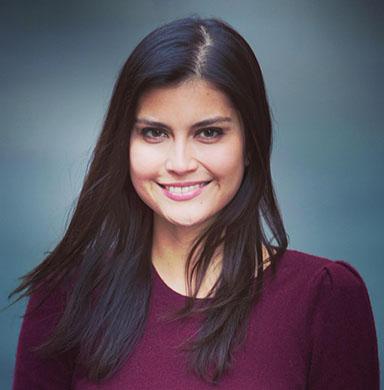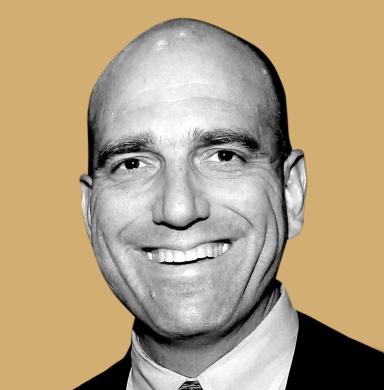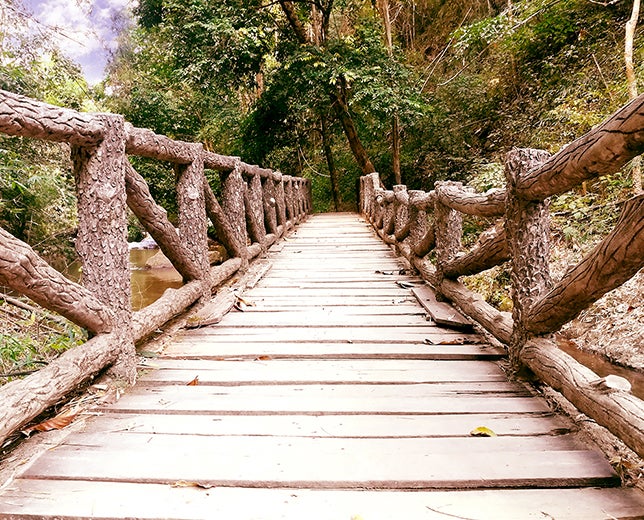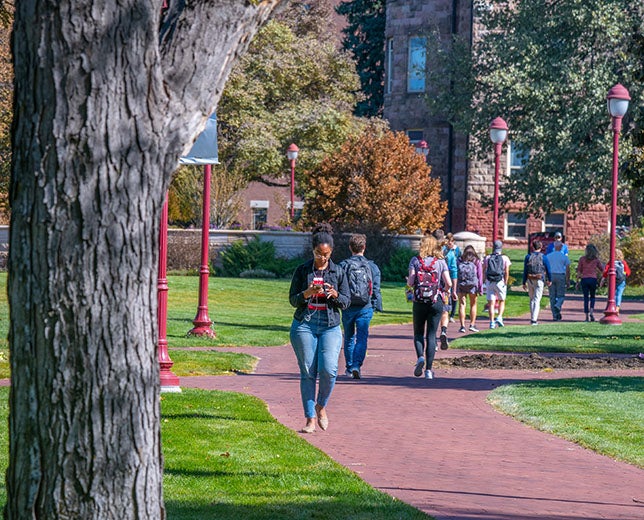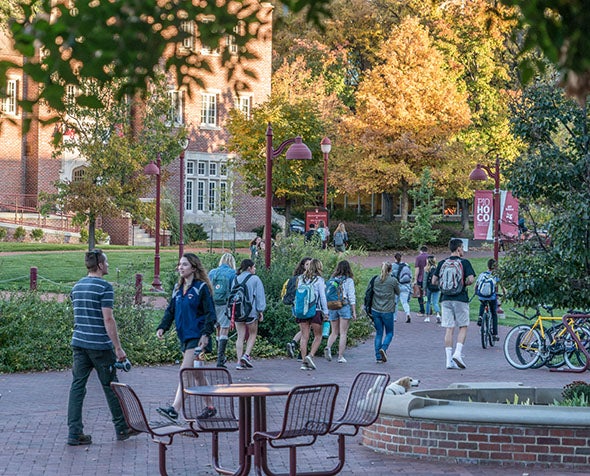Estlow and Margolin Lecturers Address Topics Ranging from AI and Disinformation to Preserving a Free Press
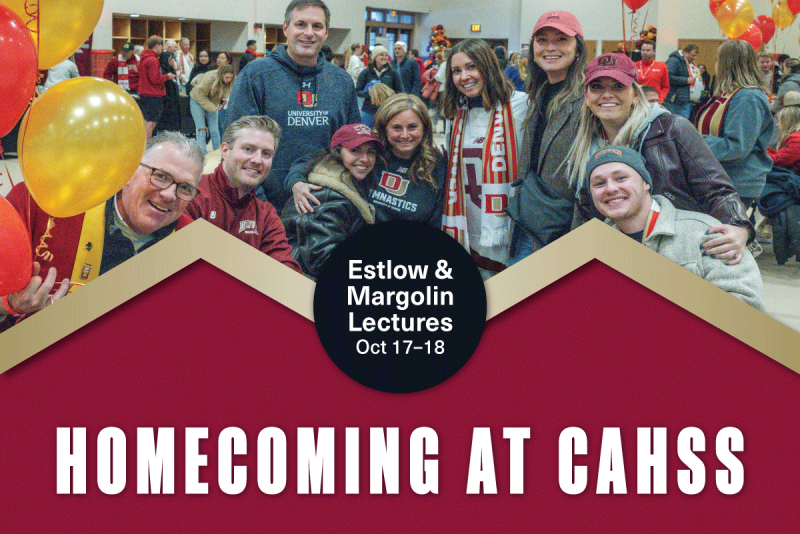
How has the internet transformed the fields of media, journalism and communications as well as the way we consume information? What does that mean for preserving a free press?
This year’s Estlow and Margolin lectures will coincide with homecoming events Oct. 17-20, commemorate the 125th anniversary of the University of Denver’s student newspaper, the DU Clarion and explore the growing challenges faced by news professionals and news consumers alike.
The 2024-25 Estlow Lecturer and Recipient of the Anvil of Freedom Award is Alumnus and former Clarion Editor David Von Drehle (’83), currently deputy opinion editor and columnist for “The Washington Post.” The award-winning journalist and author will lead a masterclass Thurs., Oct. 17 at 10 a.m., and deliver the Estlow Lecture Fri., Oct. 18 at 4 p.m. Award-winning Alumna and former Clarion Managing Editor and “Wall Street Journal” Live Journalism News Editor Sara Castellanos (’09) will deliver the Margolin Lecture Masterclass Thurs., Oct. 17 at 2 p.m. The events will be hosted by the College of Arts, Humanities & Social Sciences (CAHSS) Department of Media, Film & Journalism Studies (MFJS) in Sturm Hall, Room 248, Sam & Freda Davis Auditorium, and open to students, faculty, staff, alumni and community members
In advance of the lectures, CAHSS News asked Von Drehle and Castellanos to weigh in on topics ranging from the demise of local journalism to the role of AI, social media and disinformation in shaping the news we consume. We also will publish additional, shorter portions from our conversation leading up to the lectures over the next two weeks.
What are your thoughts on the value of a well-run, well-funded student newspaper and why is it important not only for students interested in journalism, media and communications but for all students and the university?
Castellanos: There is really no shortage of interesting stories on college campuses these days across the country, ranging from cheating controversies, scandals and protests to the impact of artificial intelligence on education. Reporters on college campuses can get hands-on experience, write about sometimes very controversial and important subjects and, like any other journalist, hold people in positions of leadership and authority accountable. I also think all students should be reading school newspapers as much as they can. It’s not just for journalism students, it’s really for everyone.
Von Drehle: Journalism is more of a trade or craft than a profession, so, it’s essential for young people who are trying to learn how to do it to have a place to practice. You learn to work with real deadlines that must be met or else there’s just a hole in the paper or on the website. There are consequences to getting facts wrong and making errors and you must stand up and correct your mistakes with everybody watching. That helps you learn that you don’t want to make mistakes, so you try harder. It's so hard to know what the reaction to an article is going to be before it comes out, your expectation is often wrong and it’s not until the wisdom of the crowd looks at it that you realize that you thought you were saying x but people interpreted it as y. All these are reasons why journalism is learned by doing.
What advice would you give current Clarion reporters and any student considering writing for the Clarion?
Castellanos: There is no substitute for hands-on journalism experience — reporting on the ground, interviewing students, professors, influential people on campus. I would say that even if you’re not considering a job in the field, working on the paper is still a really great experience that gives you a taste for curiosity and writing.
Von Drehle: The student newspaper gives students who are learning journalism in the classroom a place to practice and students on other paths who are curious about journalism a place to try it.
I have many friends who are graduates of journalism schools, but I didn’t go to journalism school because DU didn’t have one then and many of the best journalists I know didn’t go to journalism school.
I majored in English and philosophy and the philosophy classes helped me most as a journalist because philosophy classes teach how to analyze an argument, how to figure out what information proves or disproves a proposition. That’s super useful as you try to separate truth from falsehood. I often encourage young journalists who are inclined toward math to learn a lot of math because journalism is full of people who didn't like math and fall for all kinds of fancy claims related to numbers. A mathematician in journalism is like a wizard — it’s a superpower.
How did your experience on the Clarion and as a student at DU influence your future career?
Castellanos: Writing for the Clarion was one of the most important things but also as a journalism student I was very encouraged to pursue an internship at a local newspaper during college. I ended up having four internships both during and after college, beginning with an internship at the “Aurora Sentinel” that led to my first job there right out of college and covering the Aurora theater shooting in 2012. I also interned at the “Denver Business Journal,” was a Dow Jones News Fund Scholar my senior year and was placed at the “The Denver Post” upon graduation and had an internship at the “Patriot Ledger” outside Boston.
Those internships helped me recognize that I did want to pursue this career, and I think that if I didn’t have those experiences, I would not have known that a journalism career was really for me.
Von Drehle: I had an unusual beginning because I had lucked into a job at “The Denver Post” when I was in high school and kept working nights and weekends in the Post sports department while I was in college. But running the Clarion as editor, getting a decent newspaper out with a bunch of volunteers and learning how to motivate people was hugely formative. We put out the paper entirely by ourselves — there was no faculty support. There was some money from student activities funding, but we had to supplement that by advertising. I worked with so many great, reliable people and we pulled multiple all-nighters each week to get the paper to the printer by 5 a.m. I didn’t have a job remotely as hard as that until I was in my mid-thirties and running a section of “The Washington Post.”
"Now the choices are seemingly infinite, people can tailor their intake to scratch various itches and not everybody wants to get information that may make them uncomfortable or challenge assumptions that they disagree with."
What is the most significant change you’ve seen in journalism over your career?
Castellanos: Unfortunately, I’ve seen the contraction of news outlets — especially local news outlets — and massive layoffs of journalists throughout the country. It’s been difficult and challenging to watch the industry contract, but I think there’s no more important time to go into journalism. It gives me hope seeing college students and close friends still excited about journalism.
One of the other things that has changed a lot is misinformation, disinformation and competition with social media and advocacy blogs. That has been eye-opening. National media news outlets and local news outlets are now not only in competition with each other but in competition with content in general — with social media, with streaming outlets, with YouTube.
Von Drehle: The biggest change in journalism is right here in my hand [holds up his phone]. The highly portable, highly usable capacity to engage with the internet has made everybody a potential journalist and if they’re not creating their own journalism then they are their own editors by choosing what content they want to expose themselves to. And that has made our job in some ways very exciting because it opens lots of new storytelling avenues, but it also makes our jobs more difficult because we’re not the only game in town.
When I started out, if you lived in Denver and wanted a newspaper you had two choices and if you wanted to get the news in video format then you had three choices on TV. Now the choices are seemingly infinite, people can tailor their intake to scratch various itches and not everybody wants to get information that may make them uncomfortable or challenge assumptions that they disagree with. So not only are we trying to accurately portray the world but we’re trying to convince and persuade people that there’s value in seeing aspects of the world that don’t always align with what you want to be true.
What do you think needs to happen to preserve the future of journalism, media and communications and a free press?
Castellanos: I think maybe more funding needs to go into journalism, media and communications programs in high schools, in order to grow the talent pipeline. I never wrote for my high school paper, but it is incredibly important for anyone who is interested in writing or interested in talking to people and learning new things to just try it out. Better funding of programs at the high school and college levels could foster curiosity and a broader sense of interest among students. Journalists themselves could serve more as guest lecturers, not only in journalism classes but in classes about foreign policy and affairs, administration or business ethics. There are so many reporters who have such rich institutional knowledge.
Von Drehle: It starts with doing our jobs better. Where technology goes, where payment structures go, that is all outside of our control. The Open AI and the Chat GPTs and the Apples of the world are going to give us artificial intelligence whether we want it or not. The iPhone is going to continue to iterate, YouTube is going to get bigger and bigger, but making our work compelling, useful, eye-opening and delightful is something we can control.
The secret to preserving a free press is to have a large majority of American citizens believe it has value. And they get to decide what they think is valuable, we don’t. If we can’t show that value day in and day out, give them stuff that they feel that they need in formats that they feel they need, then that’s on us.
What advice would you give students and recent graduates about how to make a living as a journalism, media and communications professional?
Castellanos: Internships are always key but it’s also important to connect and have face-to-face meetings with as many journalists as you can if you’re trying to find a job. It really is all about who you know and it’s about showing your work, too, so you need to come prepared with a portfolio of your clips.
It benefits aspiring journalists to have a website where they can showcase their work. But also, it’s important to consume as much great journalism as you can and whenever you come across journalism you really resonate with, to try to reverse-engineer it in your mind and think about ways you can replicate what worked in your own reporting.
Von Drehle: The career paths are less clear today than they were but there is an upside to that, too. If I were just starting out, I’d be excited about all the new ways of storytelling.
When I came into the business unless you were a very unusual person, you had to make a choice to be a visual or a word person. To even think about making a documentary, you had to have a trust fund, really, because the cameras, the film and development were so expensive. Now you’ve got a movie function and editing function that’s adjacent to your phone, you don’t have to cut the film up and paste it back together. You can be both a visual and a word person and you can make a podcast and be a radio journalist.
There are so many ways of telling a story that are sitting in front of young people and the appetite for telling interesting, compelling stories is as strong as ever. The business models are being broken up, but the core product is as valuable or more valuable now than ever. Human beings are wired by evolution to communicate information in story form and young journalists starting out should think about the goal of telling great stories in multiple forms.
